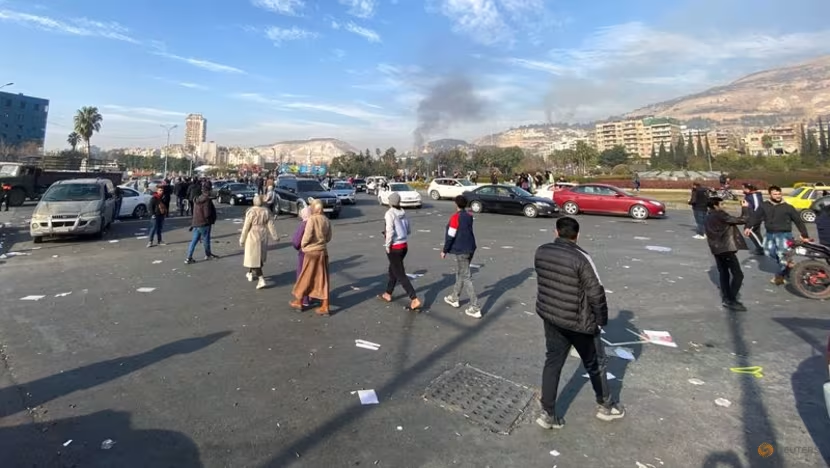On Monday, Syrians woke up to a new chapter in their history. Rebels captured the capital, Damascus, forcing President Bashar al-Assad to flee to Russia. This marked the end of a brutal 13-year civil war and over 50 years of Assad family rule.
The swift victory came from an alliance led by Hayat al-Tahrir al-Sham (HTS), once an al-Qaeda affiliate. Their success has reshaped the Middle East, removing a key platform for Iranian and Russian influence in the region. Assad and his family were granted asylum in Russia, according to reports. Mikhail Ulyanov, Russia’s ambassador to international organizations, confirmed this on his Telegram channel.
Global Reactions to Assad’s Downfall
Governments worldwide welcomed the fall of Assad’s regime. U.S. President Joe Biden noted that Syria now faces uncertainty but highlighted the diminished roles of Russia, Iran, and Hezbollah in the region.
Despite HTS’s efforts to appear moderate, the group remains labeled as a terrorist organization by the United States, Turkey, and the United Nations. Japan’s chief cabinet secretary, Yoshimasa Hayashi, stated that Tokyo was closely monitoring developments.
The end of Assad’s rule weakens Iran’s ability to arm its allies and could jeopardize Russia’s naval base in the Mediterranean. Millions of Syrian refugees, scattered across Turkey, Lebanon, and Jordan, might finally return home.
Rebuilding After War
Rebel leaders now face the immense challenge of rebuilding a country devastated by war. Syria’s cities lie in ruins, its economy crippled by sanctions, and its people scarred by loss. Billions of dollars in aid will be needed for reconstruction.
Ahmed al-Sharaa, also known as Abu Mohammed al-Golani, leader of HTS, addressed a crowd at Damascus’ historic Umayyad Mosque. He declared that Syria could become a guiding light for the Islamic world with collective effort.
The Assad regime was infamous for its harshness, with countless political prisoners enduring inhumane conditions. On Sunday, newly freed detainees celebrated in the streets, holding up their hands to show how many years they had been imprisoned. Families reunited in scenes of overwhelming emotion.
The White Helmets rescue organization began searching for hidden cells still holding detainees. While Damascus remained calm overnight under a curfew, some looting occurred, including at Assad’s presidential palace.
Transition to a New Government
The rebel coalition announced plans to establish a transitional governing body. This group will oversee the transfer of power and work toward unity among Syria’s diverse communities.
Syria has a Sunni Muslim majority but is home to various religious groups, including Christians and Alawites, the sect to which the Assad family belongs. HTS aims to address these differences to build a stable future.
Regional and Global Impacts
The rapid change in Syria shocked the world. It raised concerns about further instability in the Middle East.
The U.S. Central Command conducted airstrikes against Daesh camps in central Syria on Sunday. Defense Secretary Lloyd Austin emphasized the importance of protecting civilians and maintaining vigilance.
The civil war, which began in 2011, left cities in rubble and created a massive refugee crisis. Millions fled to neighboring countries, while many sought safety in Europe. Turkey, which supported some rebel factions, and the U.S., backing Kurdish-led forces, played significant roles in the conflict.


